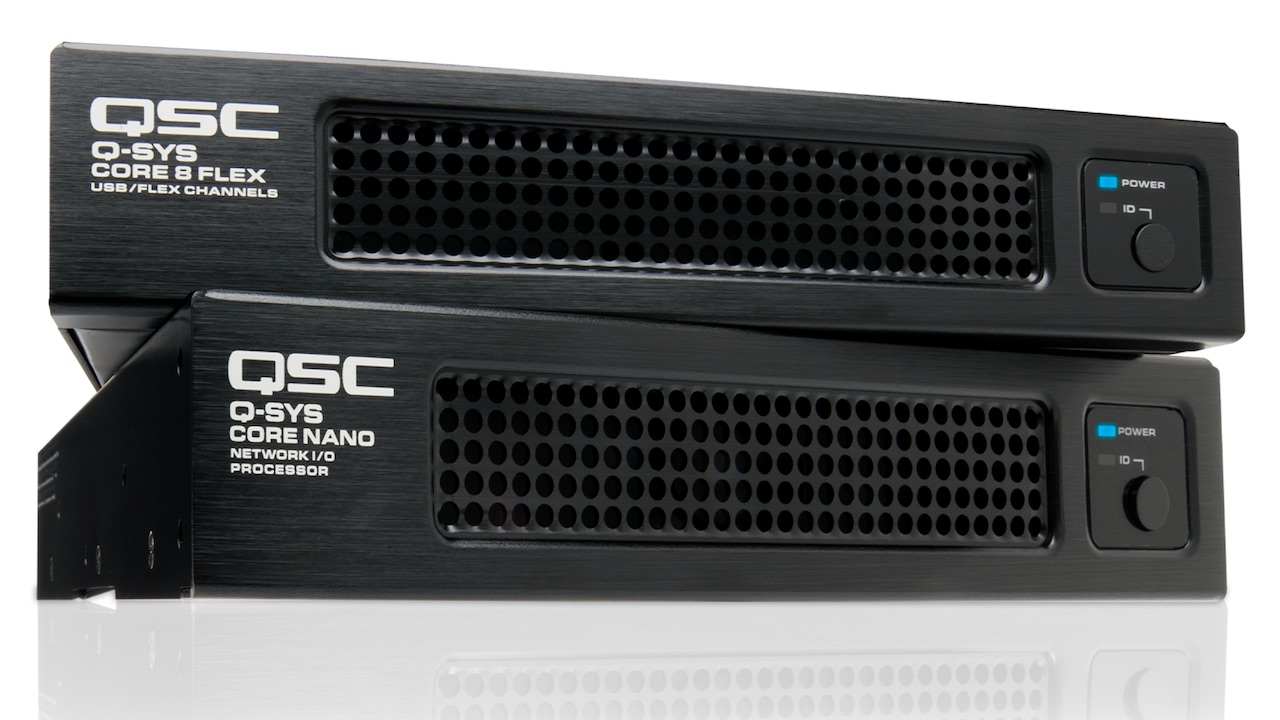The What: QSC has announced the addition of two smaller-sized AV and control processors to the Q-SYS Ecosystem: Q-SYS Core 8 Flex and Q-SYS Core Nano.
The What Else: Driven by the proliferation of networked endpoints and the expanding processing needs of a wider variety of spaces and topologies, the Core 8 Flex includes onboard analog audio I/O and GPIO plus network I/O while the Q-SYS Core Nano offers network-only audio I/O processing and control. Built on the same flexible and scalable software foundation as the rest of the Q-SYS processor portfolio, including the best-in-class Q-SYS Core 110f, these new Cores expand design options to meet a wider variety of installations.
Related: QSC Joins Microsoft Teams Device Certification Program
The Q-SYS Core 8 Flex includes a 64x64 networked I/O channel capacity with eight onboard FLEX audio channels and eight GPIOs to integrate analog audio and control devices into the Q-SYS Ecosystem. Q-SYS Core Nano offers the same 64x64 networked audio I/O without the onboard analog I/O to support installations with smaller spaces with centralized processing and fully networked endpoints. Both of these new Q-SYS Core processors occupy a smaller half-width, 1RU footprint and include pre-installed 8x8 Software-based Dante audio channels (license upgradeable up to 32x32 channels), driverless USB audio, and AV bridging capabilities.
“These new processors answer the call of smaller spaces that require fewer I/O as well as the increased popularity of fully networked peripherals with a solution that stays true to the foundation of our platform, delivering the rock-solid processing power and extensibility you have come to expect from QSC,” said Trent Wagner, audio product manager, QSC. “The Core 8 Flex and Core Nano rightsize the onboard I/O and physical footprint without compromising on features, performance, or flexibility.”
“The introduction of these two new Core processors brings even more design flexibility to the Q-SYS Ecosystem, delivering on the promise of a standards-based software platform that can easily scale up or scale out,” said Jatan Shah, executive vice president, chief operating office and technology officer, QSC. “I’m proud of the innovation and engineering strength of our research and development teams, who continue to deliver solutions that meet the evolving needs of the markets we serve, while reducing complexity and cost for our partners and customers.”
The Bottom Line: These smaller Core processors utilize the same software-based architecture, control engine, and design software suite (Q-SYS Designer Software) as the rest of the Q-SYS Core processing portfolio. They both offer scalable DSP processing, video routing and bridging for web conferencing, as well as third-party endpoint integration without the need for separate dedicated control processors.
